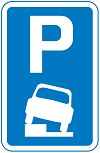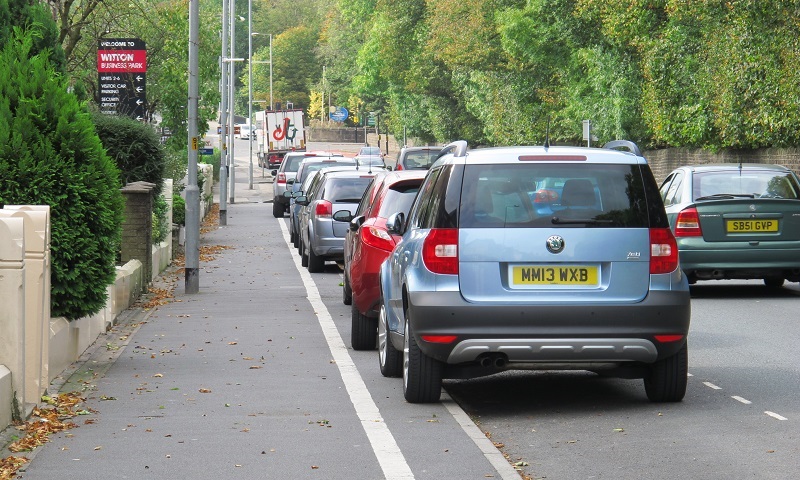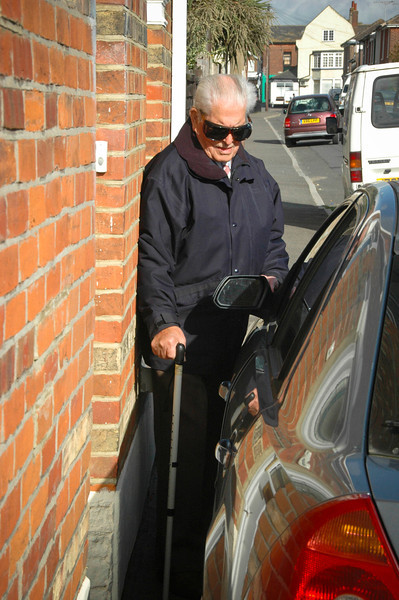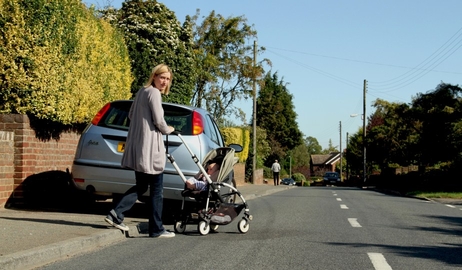Website contents
Home page
A protest campaign over poor walking and cycling safety
- Children are being harmed on Merseyside's roads: Who's responsible?
- Why a protest campaign is needed
- Civil disobedience and road safety: Q and A
Effective road safety planning: what should be happening
What the vision should be- A road safety vision
- Walking safely is a basic human right
- Declaration of every child's right to safe and healthy streets
- Decision making in a democracy: 7 Principles of Public Life
- Effective road safety planning
- What constitutes proper consultation
- Public bodies should avoid 'The patronising disposition of unaccountable power': the Hillsborough Report by the Right Reverend James Jones
- Merseyside road casualties - summary
- Merseyside road casualty maps
- Merseyside pedestrian casualties: the worst in Great Britain
- Merseyside child pedestrian casualties: the third worst in Great Britain
- Liverpool pedestrian casualties: the worst metropolitan borough
- Merseyside cyclist casualties: bottom third position
- Merseyside child cyclist casualties: the fifth worst in Great Britain
- Cyclist casualties: Liverpool is the worst metropolitan borough
- Motorcyclist casualties: Merseyside is the worst metropolitan area
- Motorcyclist casualties: The Wirral is the second worst metropolitan borough
- Car occupant casualties in Merseyside
- Total (all modes) road casualties: Merseyside is the worst metropolitan area
- Total (all modes) road casualties: Liverpool is the third worst metropolitan borough
- Pavement parking: Questions and answers
- Childhood obesity levels in Merseyside
- Deaths from air pollution in Merseyside
Options that should be considered
- Best practice options: policy documents
- Best practice options: Safe System approach to road safety
- Best practice options: 20mph speed limits
- Best practice options: 20mph speed limits: Pedestrian fatality risk and impact speed
- Best practice options: 20mph speed limits: Recommendations
- Best practice options: cycling infrastructure
- Best practice options: actions by police forces against illegal pavement parking
- Best practice options: regulated (permitted) pavement parking
Merseyside road safety failures
- Why children are suffering so much harm from the danger on Merseyside's roads
- Liverpool City Region Road Safety Strategy 2017-2020
- Liverpool City Region Local Journeys Strategy
- Liverpool Council never completed its Inquiry into poor road casualty figures
- Liverpool Council: Appalling cycling infrastructure
- Wirral Council road safety malpractice
- Wirral Council's failing road safety scrutiny committee
- Merseyside Police: failure of public engagement: a case history
- Improvements needed from Merseyside Police
- Why are road safety volunteers having so little effect?
Merseyside / national road safety failures
- How changes in the Highway Code caused the pavement parking confusion
- Why the Living Streets / Guide Dogs pavement parking campaign is inept and dangerous
- Flawed DfT "Consultation" on pavement parking
- Two child pedestrian deaths from pavement parking
- The 2018 Atkins/AECOM/Mayer 20mph Research Study was seriously flawed
Merseyside road safety concerns
So-Mo project on pedestrian casualties- So-Mo project outline
- So-mo project to reduce pedestrians killed or seriously injured on Liverpool's roads: Concerns and questions
- So-Mo meeting on 16th March 2018: Response by Liverpool Pedestrians Association
- So-Mo reports of May 2018: Response by Liverpool Pedestrians Association
Merseyside road safety improvements
- Merseyside Police and Crime Plan 2017 - 2021
- Merseyside Police leading the way in tackling pavement parking
Taking action on poor road safety
Current campaigns
- Voluntary groups
- Vision Zero Merseyside 2013
- Letter to Jane Kennedy and Steve Rotheram re LCR road safety strategy
- Letter to Jane Kennedy and Steve Rotheram: Replies from Jane Kennedy, Steve Rotheram and Sean Traynor
- Meeting notes: Merseyside Road Safety Partnership with Liverpool Pedestrians Association, 27 March 2018
Newsletters
- Newsletters: contents
- Newsletter - August 2018
- Newsletter - 16 December 2017
- Newsletter - 23 November 2017
- Newsletter - 2 November 2017
News
- PCC Scrutiny Group meeting 5 December 2017 - Provisional
- Highlights of the 9th 20mph conference in Birmingham, 8 March 2017
- Merseyside Police Performance and Scrutiny Group meeting of 2 March 2017
About
Contact
Pavement parking: Questions and answers
Legal pavement parking
The road sign needed:

The sign in use:

Illegal pavement parking



Is parking a motor vehicle on a pavement legal?
The sign in use:

Illegal pavement parking



- where signs permit it - local councils can permit parking on the pavement on specified roads via signs on posts and white lines on the pavement - see panel
- in an emergency
- if the vehicle (e.g. a motorbike) is pushed on to the pavement rather than driven on, provided that it does not obstruct pedestrians.
- It is an offence to drive on to a pavement (the Highway Act 1835 and Road Traffic Act 1988 - see the Highway Code section 145).
- It is an offence to obstruct a pavement - via Regulation 103 of The Road Vehicles (Construction and Use) Regulations 1986. The definition of obstruction is not spelt out, but many vulnerable people need a pavement width of 2 metres, e.g. someone needing a guide dog, or in a wheelchair, or groups of parents with buggies.
- Two children have died when vehicles were driven on to a pavement to park: Esme Weir aged 4 was killed by a Merseyside driver while on her way to pre-school on her scooter; Lennon Toland aged 5 was killed in Glasgow while walking home from school
- Many pedestrians have had dangerous and very unpleasant near misses when drivers have mounted the pavement at speed to park - some drivers even hoot at pedestrians to get out of their way.
- Pavements are obstructed causing problems for people with disabilities, especially those needing a guide dog or wheelchair - some can no longer leave their homes independently
- Pavements are getting damaged as they are not constructed to carry the weight of vehicles, causing a tripping hazard for elderly people.
- Walking safely is a basic human right and the space allocated to pedestrians should be respected.
Who is responsible for enforcing the law?
The law is currently poorly enforced and this is causing problems for many people.
Where might parking on pavements be permitted?
A minority of roads, such as those with terraced housing, where there is limited off-road parking, can be considered for legalised and regulated parking on pavements. The areas where parking on pavements is permitted are indicated by signs and by white lines on the pavements.
What is special about London?
As well as the national legislation, there is an additional law in London that being parked on a pavement is illegal, whether or not the vehicle was driven on to the pavement and whether or not it is causing an obstruction. This is enforceable by councils and means that pavement parking is easier to prevent in London.
- The police are responsible for enforcing the laws prohibiting driving on the pavement and obstruction of the pavement.
- Local councils can take on the enforcement on specified roads via traffic wardens.
Where might parking on pavements be permitted?
A minority of roads, such as those with terraced housing, where there is limited off-road parking, can be considered for legalised and regulated parking on pavements. The areas where parking on pavements is permitted are indicated by signs and by white lines on the pavements.
What is special about London?
As well as the national legislation, there is an additional law in London that being parked on a pavement is illegal, whether or not the vehicle was driven on to the pavement and whether or not it is causing an obstruction. This is enforceable by councils and means that pavement parking is easier to prevent in London.
What official sources are there for the law on pavement parking?
- Merseyside Police have published a brief summary on their website - see https://www.merseyside.police.uk/advice-and-protection/policing-the-roads/pavement-parking/
- The House of Commons Library has produced a report: Pavement and on-street parking in England (2015) http://researchbriefings.parliament.uk/ResearchBriefing/Summary/SN01170
- The Department for Transport Traffic Signs Manual (2008) (chapter 3 - Regulatory Signs) specifies signage for permitting pavement parking, and for local authority enforcement: https://www.gov.uk/government/uploads/system/uploads/attachment_data/file/223943/traffic-signs-manual-chapter-03.pdf
Do we need a law "to ban pavement parking"?
Pavement parking is already illegal, so we do not need a law to ban it. Extending the law covering London to the rest of the UK so that councils can enforce the law would help, but the highest priority is to educate drivers that they should not park on pavements except where signs permit it.
What should be done about pavement parking?
- Drivers should be educated, for example by the Merseyside Police flyers and posters, or the Thames Valley Police windscreen stickers.
- Members of the public should help distribute the Merseyside Police flyers if living in Merseyside, or work with their local police force to educate drivers similarly if elsewhere.
- Councils should specifically legalise pavement parking on streets where there is a community consensus that this should be done - just turning a blind eye causes confusion, chaotic parking and danger for vulnerable pedestrians.
- The Police should prosecute persistent or particularly bad cases of illegal pavement parking.
- The Government should ensure that ring-fenced funding is provided to police forces for effective education and enforcement regarding pavement parking.
Last updated: 3 Jan 2020

